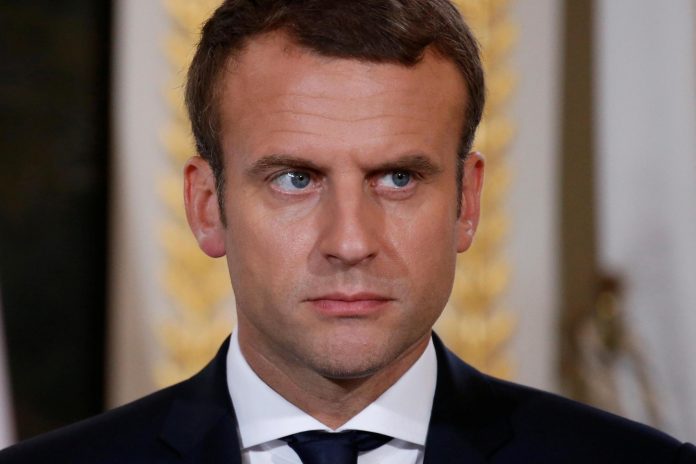By Nizamuddin Ahmad Siddiqui
As I write this piece, the public discourse is filled with noise – both in support of and against the decry by Emmanuel Macron, the French President, that “Islam is in crisis”. In his latest interview with Al Jazeera, Macron underlines his intention to protect the “freedom of thought, speech, and drawing” without “taking sides”.
The reality stands, however, different from what he mentions – more than sixty mosques and religious centres have been closed, multiple arrests made and the controversial Charlie Hebdo cartoons projected on important public buildings.
The facts preceding these events provide the context – speeches by the French President which many say singled out Islam; the brutal murder of a school teacher, Samuel Paty, by a Muslim immigrant; multiple killings at a cathedral at Nice, again by a Muslim; multiple stabbing of Muslim women at Eiffel Tower in Paris, which largely went unnoticed from the media glare; large scale protests by Muslim throughout the world leading to the economic boycott of French products; and Turkey and Pakistan publicly denouncing Macron’s statements.
These are indeed troubled times!
In the midst of all this, I am reminded of a conversation with a friend many years back. Upon finding me religiously inclined, he had asked, “why are the Muslims so violent world-over?” He was an agnostic borne out of an inter-religious marriage between a Muslim and a Hindu. I asked if he had any Muslim friends and how many of them he had found violent. Having been friends with numerous Muslims since his childhood he remained silent to my question. His second query was even more interesting – “why do Muslims not condemn the violence in the name of Islam?” I remember I had replied, “for any condemnation to gain acceptance, the Muslim citizenry must be seen as the first victim of such radical discourse.”
The French situation is similar in many respects. Almost everyone is asking questions that are fundamental to the Muslim identity – why does Islam seem so inherently violent? Why are Muslims so sensitive about their faith? Why Muslims, in minority, cannot adjust to the cultural values of the majority? Is Islam actually in crisis? Do we need a state-regulated definition of Islam? Could there be a French Islam or a European version of Islam? The queries seem endless.
Can we navigate through this complex maze of questions? Can we find suitable answers? Yes, we can. But that would require us to – first, identify the Muslim citizenry as the victim of such discourse, much like the others; and second, to give Muslims the required spaces to forge dialogues, and help shape the public political discourse on these issues. In nutshell, these questions cannot be addressed by anyone else on behalf of the Muslim citizenry.
The discourse on political Islam is being forged in the name of Islam and in a manner which endangers the socio-political existence of the Muslim citizenry. It is our duty to not let this happen. The state must step in to enable capacities within the Muslim civic life that have the potential to foster such public engagements. In the end, the culture of dialogue and reconciliation towards finding solutions to the questions cannot but emanate from within the Muslim public psyche, and for that, the Muslim psyche must be allowed to disown such rancour.
The Muslim public psyche is, however, in crisis today. The crisis is not because of any lack of capacity to forge public opinion, but due to the lack of proper representation to foster any public discourse.
Macron is not right when he says, “secularism never killed anyone”. The French secularism has constantly stabbed the Muslim public psyche in its heart while pushing the citizenry further away from any meaningful public engagement.
Reviving Charlie Hebdo, and aligning it with French Laïcité, is the latest example of such an onslaught. It has not merely normalized the radical Islam discourse in the public dialogue but also ended up classifying the entire Muslim population as a potential suspect.
The Muslim citizenry must be given spaces of peaceful protests and must be allowed to have a dialogue with the state machinery instead of making it the target of having “bad intentions” and “radical ideas”. The state needs to appreciate the fact that freedom of “religion and conscience” is as much important as the freedom of “speech and expression”. And that none can be prioritized over the other to define the “secular” nature of the state.
The idea of secularism can never be an imposition by the state. It is an issue of belongingness and must be forged through collective action and mutual dialogue arising from within the citizenry. The state must not inject its psychology in the process. When the state steps in to enforce “principles” and “values” against its citizenry, it only alienates them from civic life and forces them to gain acceptance only at the margins of statehood.
After-all, the Muslim population in France is not entirely a first-generation immigrant. The majority of Muslims, coming from the North African region, have lived on the French soil, shaped the French identity and its cultural foundations since half a century now. They have been the subject of the French colonial actions in the past; have continued to live at the margins of French civic life, and now face the secular onslaught with the mainstreaming of the “radical” Islam.
Macron, unfortunately, has brought the French society at the cross-roads to conflict, and the road to exit seems a long drive from here.
The author is Senior Research Fellow at Jindal Global Law School, OP Jindal Global University.


